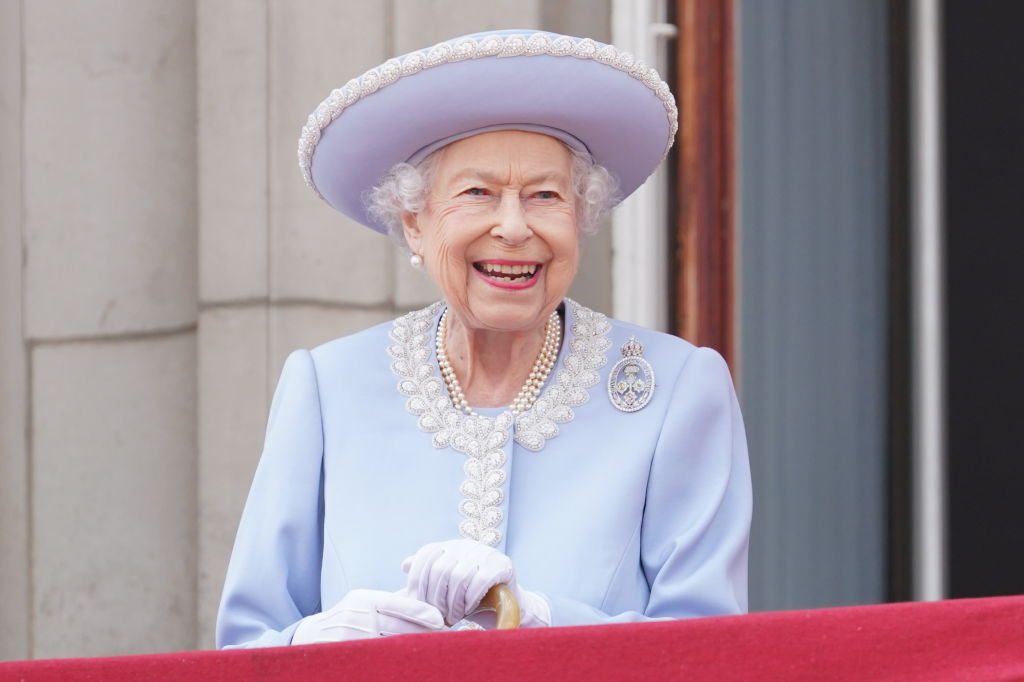Her Royal Majesty, Queen Elizabeth (1926-2022)

Elizabeth II broke all the records. Our longest serving monarch, the oldest occupant of the throne, the doyenne of heads of state globally. She acceded to the throne when Winston Churchill was prime minister and rationing was still in place. She leaves us in the age of the internet, the Mars rover and artificial intelligence.
Elizabeth Alexandra Mary Windsor was born on 21 April 1926, the first child of the then Duke and Duchess of York. She was not intended for greatness, but by the time she was 10, her grandfather George V had died, her uncle Edward VIII had abdicated and her father Bertie found himself on the throne as George VI. It was a profound shock for the whole family, but she knew from that moment where her destiny lay and what her duty was.
After wartime service in the Auxiliary Territorial Service and marriage to the handsome young naval officer Philip Mountbatten in 1947, Elizabeth was in Kenya en route to Australia when the news reached her on 6 February 1952 that her ailing father had died and that she was now queen. She was 25 years old and displayed the pragmatic calm which would become her hallmark. A breathless nation, desperate for hope and romance, saw it as a new Elizabethan era.
Her reign was so long—70 years, spanning many generations—that it seems too sprawling to assess. For most of us, she has always been simply “the Queen”, the only monarch we have ever known. She has been the fixed point in the revolutions which the world has undergone in that time, a timeless yet often universal figure. The monarchy has undergone crisis and triumph, from the peaks of the jubilees to the existential challenges of the death of Diana and the disgrace of Prince Andrew. The Queen herself, however, has remained popular and admired.
When she became Queen, she was 25 years old and displayed the pragmatic calm which would become her hallmark
Perhaps Elizabeth’s most enduring contribution was to remain both of her nation and yet somehow timeless. She was able sometimes to cross paths with the zeitgeist—presenting the FIFA World Cup to the England football team in 1966, welcoming in first Margaret Thatcher then Tony Blair—but was essentially a figure of a world which quietly endured in the background.
She loved horse racing and her gaggle of corgis, and was a quiet and undemonstratively religious figure. Her family would come to bring no end of disruption and heartache, but the sheet anchor of her life would be her husband, the Duke of Edinburgh, to whom she was married for 73 years. The public knew little of the private workings of that relationship, but it was obvious that he was critical to her emotional stability and support, and their partnership was foundational to both their lives.
As the reign has stretched longer and longer, it has become more difficult to separate the monarch from her times. She has simply always been there, inevitably but often unobtrusively part of national life. Her coronation in 1953 was a blend of the traditional and the modern, televised and seen by 277 million viewers worldwide, yet still an essentially mediaeval ceremony of a nation paying homage to its feudal ruler. It was a balance which would be maintained, sometimes uncomfortably, for another seven decades.
She loved horse racing and her gaggle of corgis, and was a quiet and undemonstratively religious figure
It was, perhaps, fitting that her last formal engagement would be one which reinforced her constitutional role, as her 15th prime minister, Liz Truss, kissed hands on appointment at Balmoral. It was a reminder of how much the Queen had seen and participated in, and if Elizabeth looked frail and aged, nonetheless she took on the engagement with aplomb and good humour. Official duties had been the constant rhythm of her life, a steady thrum which was never neglected nor resented. Some obligations had fallen prey to force majeure as she grew older, but abdication, despite uninformed rumour, was never a likely outcome.
The thread which ran through Elizabeth’s life was duty. On her 21st birthday in 1947, she had made a broadcast to the Empire in which she had said calmly, “I declare before you all that my whole life whether it be long or short shall be devoted to your service and the service of our great imperial family to which we all belong.” It was a sober commitment but utterly profound, and it motivated her for the rest of her life.
Elizabeth lived a long life of duty and service. She would never have imagined any other way, since she became heir to the throne and her succession was inevitable. Maybe only now will we realise how far she has come with us, how extraordinary a journey it has been, and how much we have changed as a nation. Looking forward, the monarchy has lost its most dedicated servant and its most tireless advocate. The future is now in the hands of her son. Whatever happens, she leaves a gap in our national life which will be difficult ever to fill.